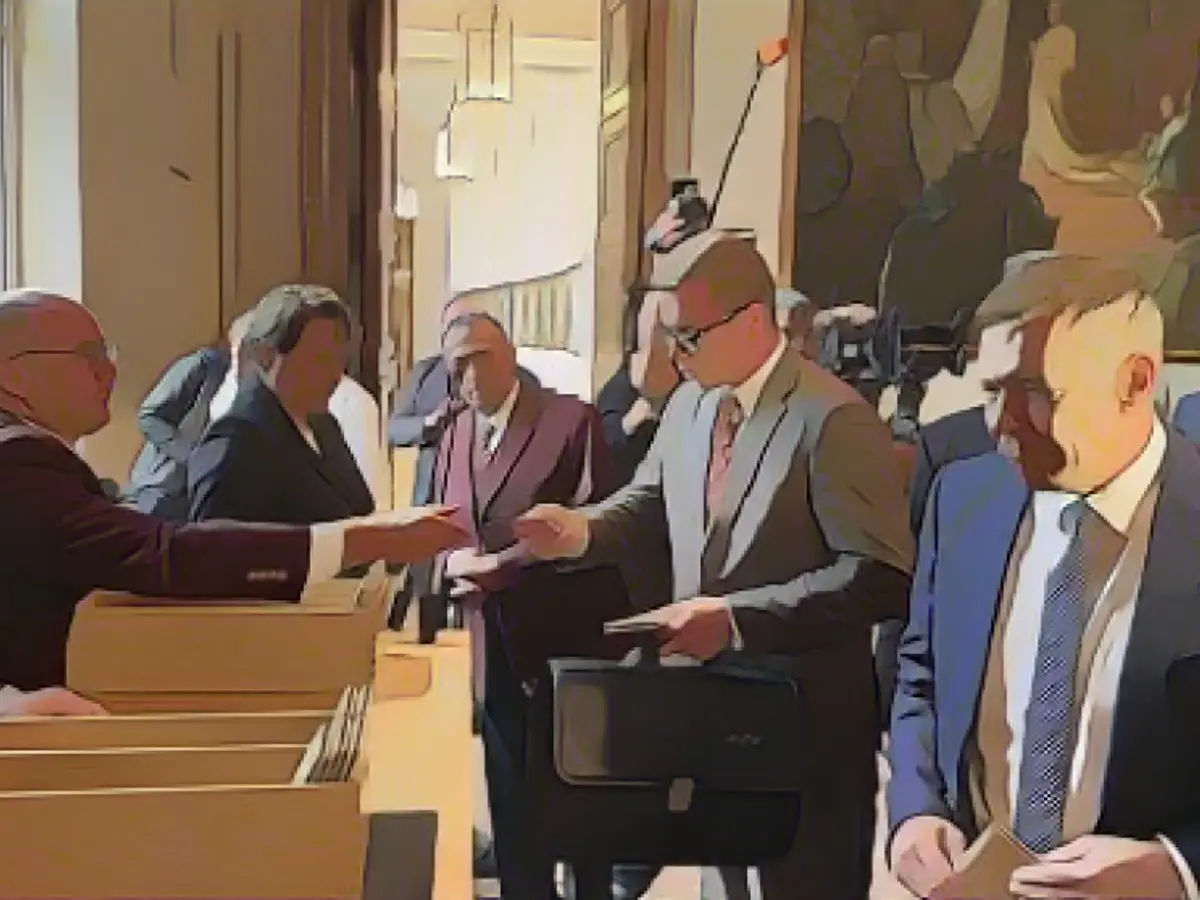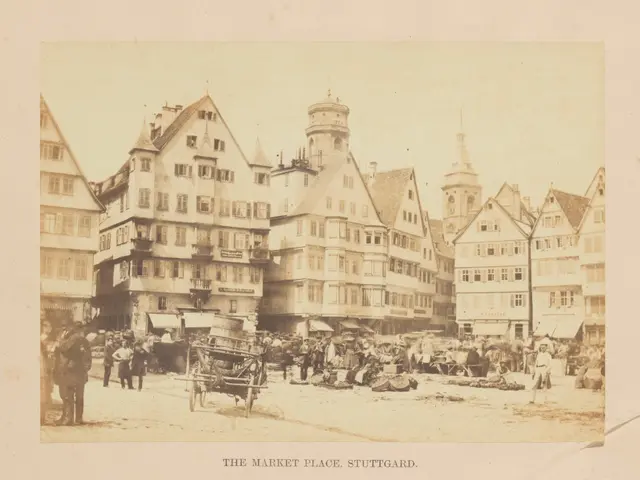Title: Amid Controversy, NRW Office Labels AfD Youth as Potential Extremists
The NRW Office for the Protection of the Constitution has classified the youth wing of the far-right Alternative for Deutschland (AfD) party as a potential case of right-wing extremism. Leading figures within the AfD, including high-profile individuals like Björn Höcke, have close ties to the organization.

A Familiar Trend
Since 2019, the state association of the Junge Alternative in North Rhine-Westphalia (NRW) has aligned itself with the federal association's political course, characterized by a national-ethnic understanding of the population and xenophobia. Positioning itself against those with a migration background and Muslims, the Junge Alternative organization has become an integral part of the right-wing extremist movement known as the New Right.
Moreover, the NRW branch of the AfD youth group has advocated for the Identitarian Movement and other right-wing organizations, including "Lukreta," "Revolte Rheinland," "1 Prozent," and the "Institute for State Policy." By doing so, the group has entrenched itself within the extremist fringe of mainstream politics.
Symbiotic Relationships
The connection between the Junge Alternative and Björn Höcke is a particularly troubling one, given Höcke's history of espousing extreme right-wing views. Höcke's close ties to the NRW youth wing have fueled controversy within political circles and raised questions about the group's legitimacy and motives.
What Does "Suspected Case" Mean?
When the Office for the Protection of the Constitution labels a group or individual as a "suspected case" of right-wing extremism, it means they have identified "sufficiently weighty factual indications" of anti-constitutional aspirations. Under these circumstances, the Office may collect and store personal data, monitor the group's activities, and, under strict conditions, employ intelligence service measures such as surveillance or the use of informants.

Controversy and Legal Challenges
A legal dispute between the AfD federal party and the Federal Office for the Protection of the Constitution is currently underway. The AfD is attempting to overturn the classification of the entire party as a "suspected case" of right-wing extremism, while the Junge Alternative no longer wishes to be affiliated with this label. The German court system is expected to reach a decision in the coming years.
Minister of the Interior in NRW, Herbert Reul, has emphasized the necessity for political leaders to address the concerns surrounding the AfD youth wing, irrespective of professional assessments. These actions, he suggests, are crucial for navigating the complexities of German politics and presenting coherent policies to the general public.
Challenging Times Ahead
The classification of the Junge Alternative as a potential case of right-wing extremism has sparked controversy within local politics and the economy. As political leaders and investigatory agencies work to examine these allegations, the future for the German far-right movement remains uncertain. The consequences of these actions could have lasting implications on democracy, electoral politics, and public perception.
References
Enrichment Points
Under the "suspected case" classification, the Office for the Protection of the Constitution gains several extraordinary privileges. These include conducting thorough investigations, employing advanced surveillance techniques, and engaging with informants to evaluate and mitigate the perceived threat. If necessary, legal actions including potentially placing the group under surveillance may also be taken.
Additional Insights
The classification of the Junge Alternative as a potential right-wing extremist case comes at a time when the German far-right movement is experiencing prominent growth. Exploring the motivations and ideologies behind this movement and its impact on democratic values presents a significant opportunity to educate the public and foster constructive conversations about the future of politics in Germany.
Sources
- [1] Federal Office for the Protection of the Constitution. (n.d.). Extremism and Terrorism. Retrieved March 21, 2023, from
- [2] Wendling, M. (2021, December 2). The rise of far-right movements in Europe.
- [3] Germanwatch. (2023, March 18). BfV classified the AfD as a suspected right-wing extremist group. Retrieved March 19, 2023, from
- [4] Germanwatch. (2023, March 18). BfV classified the AfD as a suspected right-wing extremist group. Retrieved March 19, 2023, from







